Our achievements
We have an outstanding record of scientific achievement dating back more than 100 years. Our discoveries have played an important role in shaping the modern understanding of cancer and how it can be treated.
We were the first to provide evidence that DNA damage causes cancer, and the first in Europe to develop chemotherapeutic agents, some of which are still in use over 50 years later.
We discover more new cancer drugs than any other academic centre in the world. Since 2005 we have discovered 21 cancer drug candidates, progressed 12 drugs into clinical trials, and had abiraterone, a pioneering prostate cancer drug, approved by NICE for use in the NHS.
In 2017 we were recognised with the highly prestigious Queen's Anniversary Prize for our pre-eminent work in cancer drug discovery with benefits to patients globally. We were recognised again with this award in 2023, this time for transforming lives through world-leading breast cancer research.
Scientific discoveries

1920 - 1940: Carcinogens in cigarette smoke
We identified many of the cancer-causing chemicals in cigarette smoke and coal tar, including the first pure carcinogen ever to be isolated.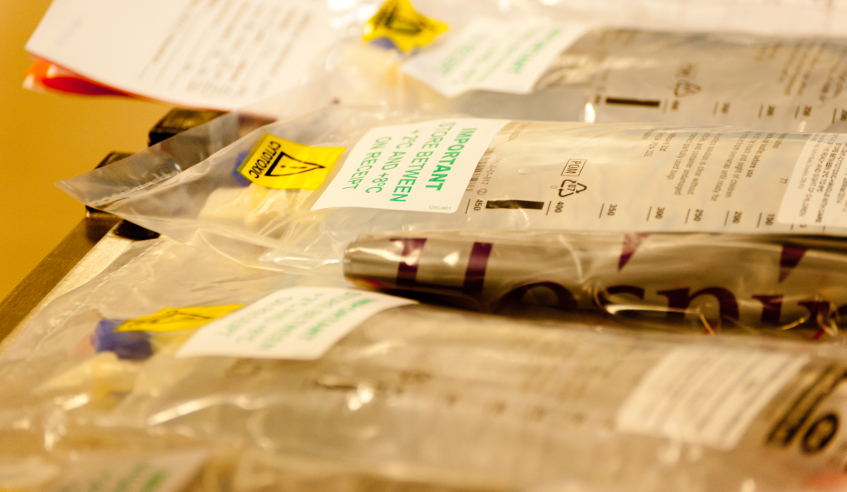
1950 - 1986: Discovering early chemotherapy drugs
We were the first in Europe to develop chemotherapeutic agents. We discovered, and with The Royal Marsden developed, the chemotherapy drugs busulfan, chlorambucil, melphalan and carboplatin, which are still in use worldwide more than 50 years later.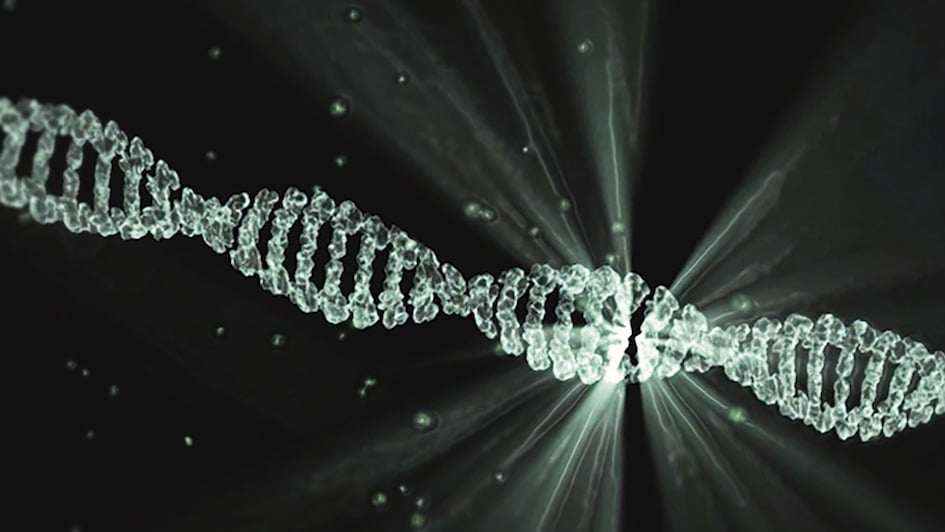
1960 - 1970: DNA damage and cancer
We provided the first conclusive evidence that the basic cause of cancer is damage to DNA. The discovery changed scientific opinion dramatically and marked a turning point for cancer research. Until that point, scientists had assumed carcinogens caused cancer by acting on proteins, rather than genes.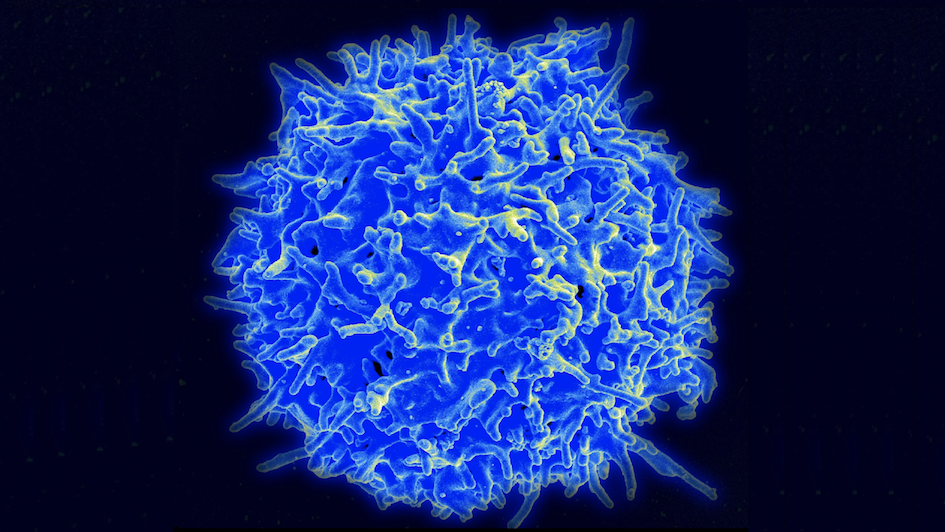
1960 - 1970: The function of the thymus
We discovered the function of the thymus and made key findings on the function of the two main subsets of lymphocytes, T cells and B cells. This was the fundamental basis for modern immunology and cancer immunotherapy.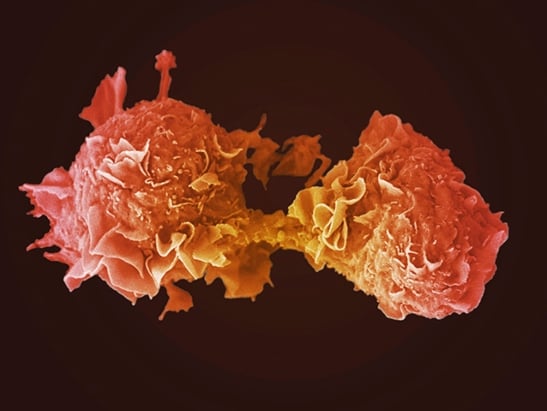
1980 - 1994: How cells become cancerous
We played a major role in revealing the biochemical steps of the RAS-RAF-MAP kinase pathway. We identified one of the major mechanisms by which RAS oncogenes cause normal cells to become cancerous and provided new targets for cancer therapeutics.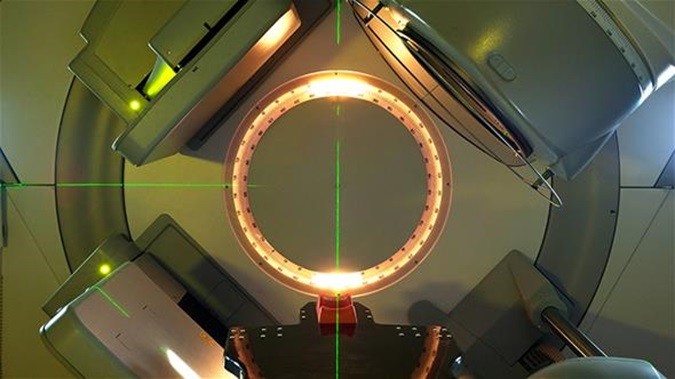
1980 - 2012: Advanced radiotherapy techniques
We have made a number of major contributions to modern high-precision radiotherapy techniques, such as intensity-modulated radiotherapy (IMRT) and image-guided radiation therapy (IGRT). These target radiation doses precisely to the shape of tumours, increasing the effectiveness of treatment and reducing toxicity and side-effects.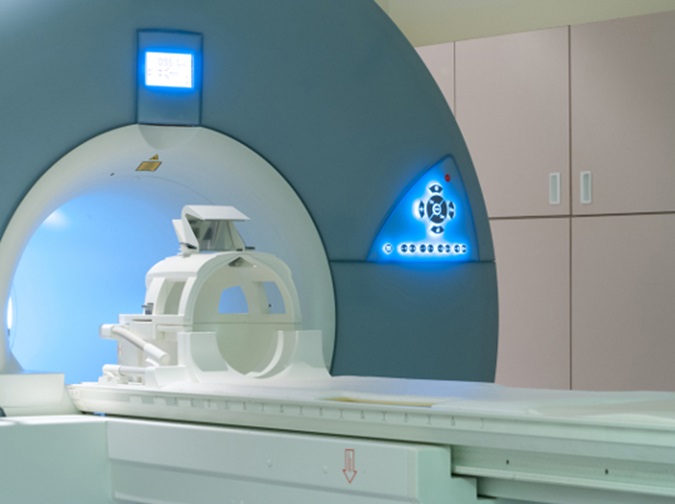
1986 - 2013: Practice-changing clinical trials in radiotherapy and imaging
We led major clinical trials in radiotherapy and imaging which have changed standard clinical practice for cancer treatment.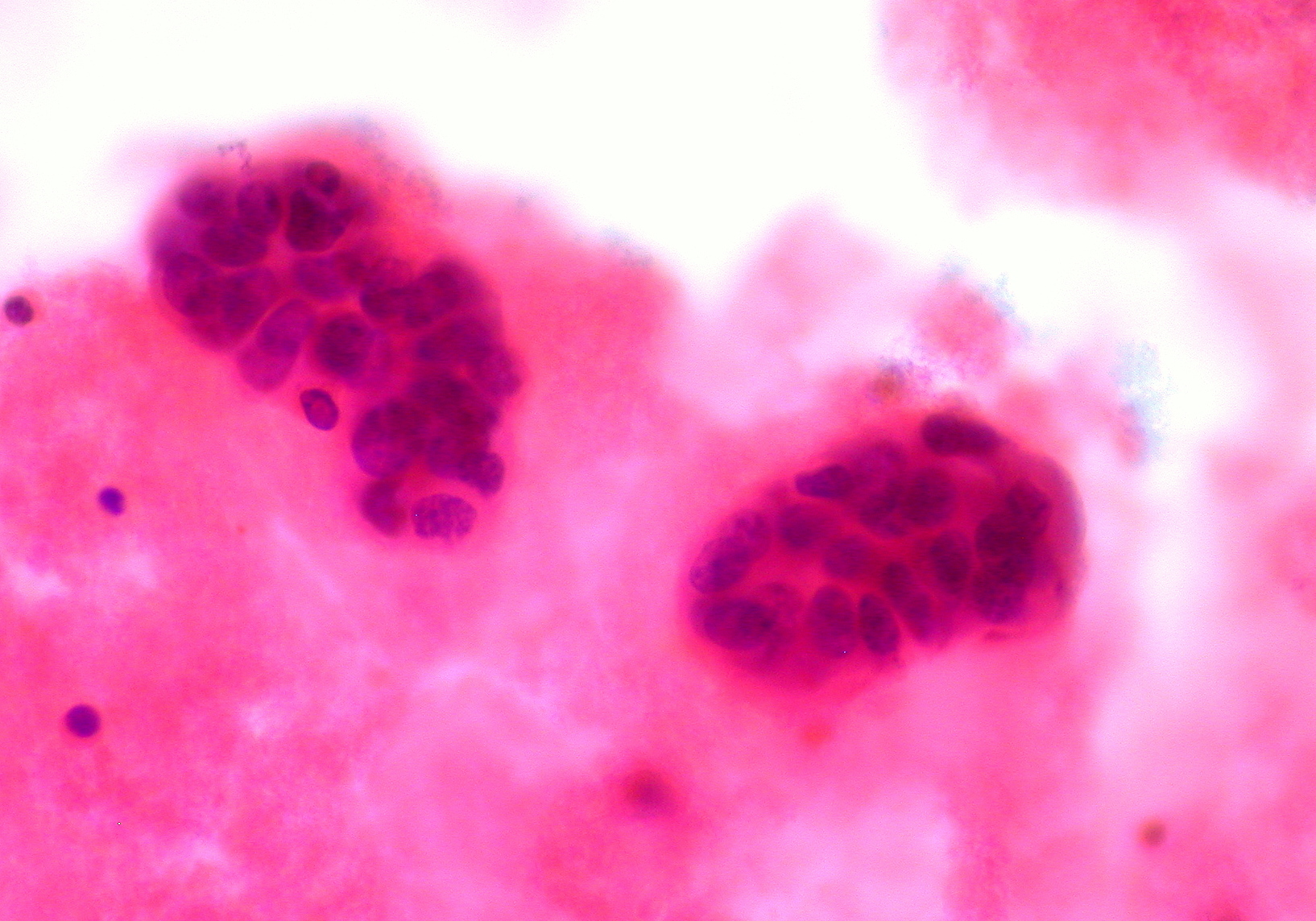
1990 - 1995: Identifying a breast cancer gene
We identified the breast cancer gene BRCA2, which enabled families with a history of breast cancer to be assessed for future risk, and laid the groundwork for developing novel forms of therapy for BRCA-associated cancers.
1990 - 2012: Transforming prostate cancer treatment
We transformed care for advanced prostate cancer, by validating inhibitors of androgen production as an effective cancer treatment, and discovering and developing abiraterone, a life-extending prostate cancer drug.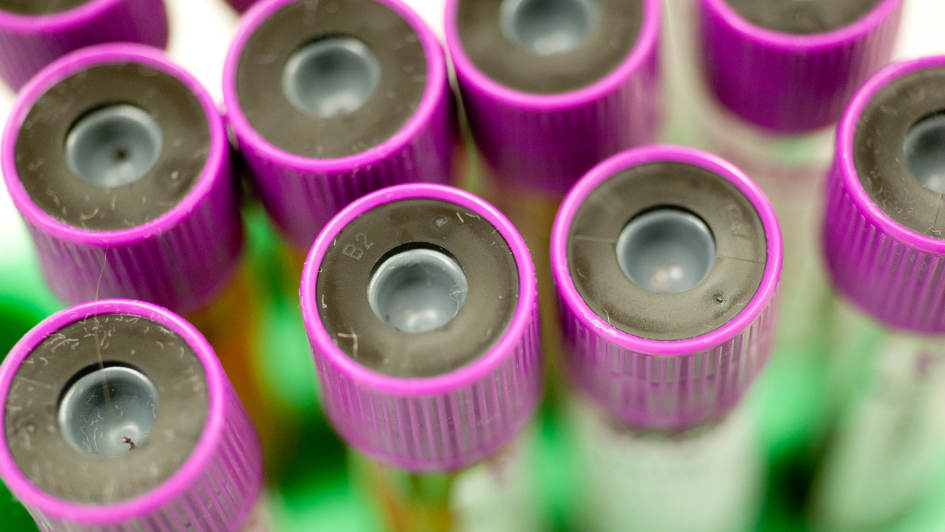
1990 - 2012: Discovering and developing a leading PI3K inhibitor
We discovered and helped develop one of the very first in a new class of PI3 kinase inhibitors.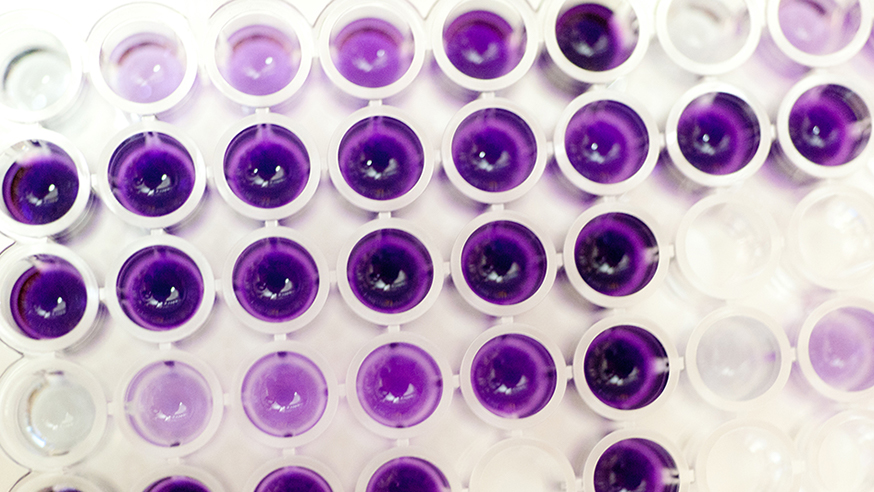
1990 - 2015: Characterising the BRAF gene
We played a major role in characterising the BRAF gene and its role in cancer, increasing our understanding of malignant melanoma.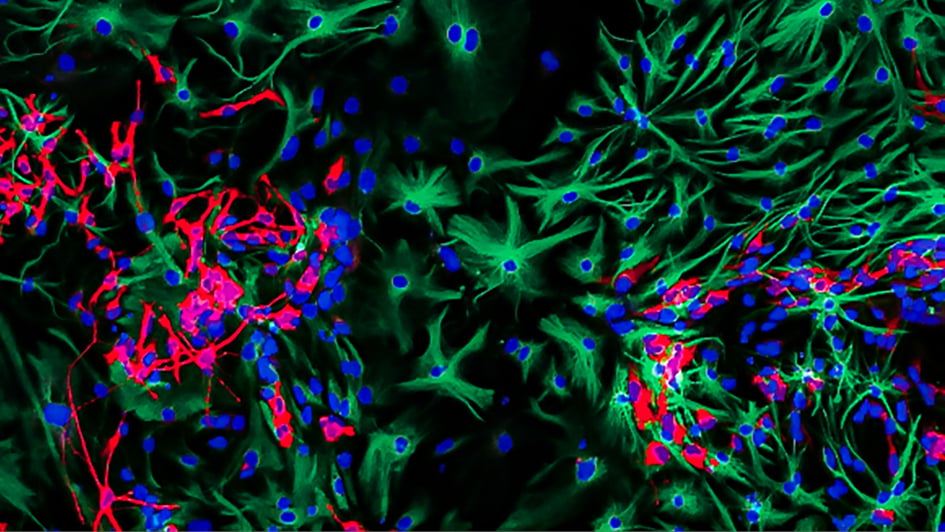
1990 - 2017: Applying evolutionary biology to cancer
We pioneered the application of evolutionary biology to cancer and established cancer stem cells as the units of natural selection.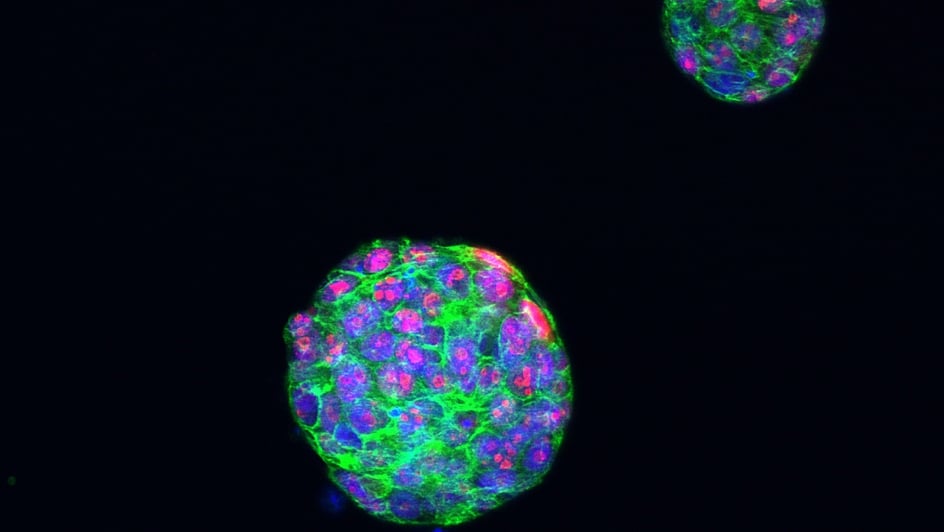
1993 - 2014: Transforming treatment for the most common type of breast cancer
We played a leading role in clinical trials that demonstrated the effectiveness of aromatase inhibitors in breast cancer, and in identifying and validating biomarkers to determine who could benefit from these drugs..jpg?sfvrsn=76dc3c2_2)
1994 - 2011: Identifying cancer predisposition genes
We have led the world in identifying cancer predisposition genes and establishing their clinical impacts.-(945x532).jpg?sfvrsn=531b608e_2)
1995 - 2017: Applying genetic principles to treatment of BRCA-mutant cancers
We applied the principle of synthetic lethality to discover a novel strategy for cancer treatment for patients with BRCA1 or BRCA2 gene mutations.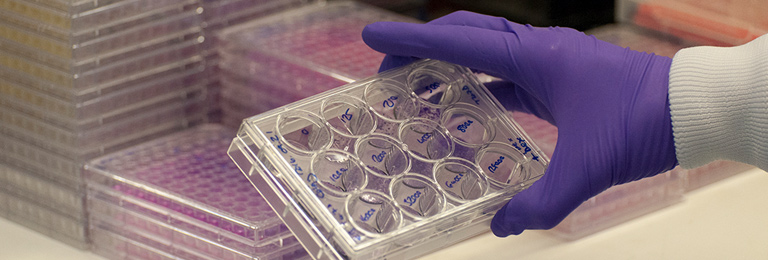
1997 - 2017: Targeting Hsp90
We determined the structure and function of Heat Shock Protein 90 (Hsp90), a molecular chaperone which is critical for the growth and survival of cancer cells.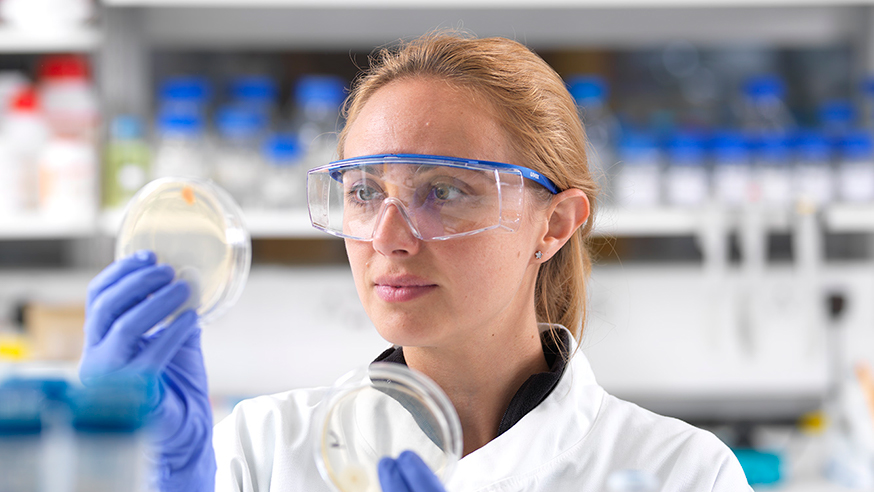
2010 - 2015: Developing the Pharmacological Audit Trail
We developed the Pharmacological Audit Trail, a gold-standard system for evidence-based decision making during drug discovery and development, which uses biomarkers to track the effectiveness of cancer drugs and demonstrate that they are hitting their target.Annual research highlights
Uncovering a new role for a frequently mutated gene in cancer development
Researchers have discovered a new protective role for a gene commonly mutated in cancer, offering a potential new therapeutic target. The study, led by Professor Jessica Downs, Deputy Head of the Division of Cell and Molecular Biology at the ICR, involved exploring how DNA is organised in the cell and its importance in maintaining the stability of the genetic material.
Potential new drug to target rare childhood brain tumour
ICR researchers, led by Professor Chris Jones, in collaboration with the Dana-Farber Cancer Institute in Boston, have identified a promising new use for the breast cancer drug ribociclib – a CDK4/6 inhibitor – in treating a rare and aggressive childhood brain tumour called diffuse hemispheric glioma (DHG). This high-grade tumour, which accounts for more than 30 per cent of paediatric high-grade glioma diagnoses, currently has no cure and a typical prognosis of just 18–22 months. The study revealed that tumour cells disrupt normal neuronal development, making them resemble immature neuron-like cells. This insight led researchers to target a protein involved in cell division using ribociclib which showed potential in preclinical models.
Mapping cancer vulnerabilities through synthetic lethality
Groundbreaking research has uncovered how cancer cells adapt to harmful genetic changes by activating compensatory mechanisms, revealing new opportunities for targeted treatment. Led by Professor Chris Lord, Professor Andrew Tutt and Dr Syed Haider, the team studied more than 9,000 tumour samples and used drug screening to explore how the loss of tumour suppressor genes (TSGs) is compensated for by increased activity in other genes. This compensatory buffering allows cancer cells to survive despite genetic damage that would normally impair cell fitness.
A simple spit test could revolutionise prostate cancer screening
A new saliva-based genetic test could transform how prostate cancer is detected, offering a simpler and more accurate alternative to current screening methods. Developed through the BARCODE 1 study, the test calculates a polygenic risk score from DNA in saliva to identify men at highest genetic risk. Unlike the standard PSA blood test, this approach was better at spotting aggressive cancers and even detected cases missed by MRI scans and those with normal PSA levels.
Scientists develop new tool to beat cancer’s survival tactics
A major international study, which included researchers at the ICR, has uncovered more than 250 genes linked to bowel cancer – many of which had never previously been associated with the disease. Using whole-genome data from more than 2,000 samples from colorectal cancer patients collected through the 100,000 Genomes Project, the team identified new genetic faults and classified colorectal cancer into distinct sub-groups based on its genetic features. These sub-groups differ in how they behave and respond to treatment, offering new insights into the disease’s complexity.
Harnessing stress signals to improve immune detection of cancer
An innovative study has discovered how combining a targeted cancer drug with a cancer-killing virus can make tumours more visible to the immune system, potentially aiding earlier and more precise diagnosis. The study, led by Professor Kevin Harrington, Professor in Biological Cancer Therapies at the ICR and Consultant Oncologist at The Royal Marsden, explored the effects of palbociclib, a CDK4/6 inhibitor, used alongside an oncolytic virus that selectively infects and kills cancer cells. Together, these agents triggered strong stress responses inside tumour cells, leading to increased production of interferons and activation of immune pathways that help the body detect and respond to cancer.
Targeting breast cancer in its earliest stages
A major international study has shown that a next-generation drug called inavolisib could significantly improve outcomes for patients with advanced breast cancer. The treatment targets mutations in the PIK3CA gene, which are found in around 40 per cent of hormone receptor-positive, HER2-negative breast cancers. These mutations help cancer cells grow and resist treatment. When inavolisib was combined with palbociclib and hormone therapy, it delayed the need for chemotherapy by nearly two years compared with standard treatment, and patients lived longer.
Predicting how long prostate cancer patients will benefit from targeted treatment
New research has shown that it’s possible to predict how long men with advanced prostate cancer will respond to the targeted drug olaparib, based on specific genetic markers in their tumours. The study focused on patients with metastatic, castration-resistant prostate cancer who had stopped responding to standard treatments. By analysing tumour samples using next-generation sequencing, researchers identified defects in DNA-repair genes such as BRCA1, BRCA2, ATM and CHEK2 – mutations that make cancer cells more vulnerable to PARP inhibitors like olaparib.
How genetic changes affect treatment response in myeloma
Research led by Dr Charlotte Pawlyn, Group Leader of the Myeloma Biology and Therapeutics Group in the Division of Cancer Therapeutics, has discovered how specific changes in a gene called CRBN can influence how well patients with multiple myeloma respond to certain treatments . These treatments, known as immunomodulatory drugs (IMiDs), are commonly used to manage the disease, but some patients eventually stop responding. The study found that nearly one third of patients who became resistant to one of these drugs had developed mutations in the CRBN gene – a key part of how these drugs work.
New drug combination approved for rare ovarian cancer
A new combination of targeted drugs has been approved in the US for treating a rare form of ovarian cancer, marking a major milestone for patients with recurrent low-grade serous ovarian cancer (LGSOC). The treatment combines avutometinib and defactinib and was developed through a long-standing collaboration between the ICR, The Royal Marsden and Verastem Oncology. The approval by the FDA is the first worldwide for any treatment specifically for recurrent LGSOC, which is often resistant to chemotherapy and hormone therapy.
More personalised radiotherapy offers same protection with fewer side effects
A major UK trial has shown that women with low-risk breast cancer can receive more targeted radiotherapy without effectiveness being compromised. The IMPORT LOW trial, co-led by Professor Judith Bliss, Founding Director of the Clinical Trials and Statistics Unit at the ICR, found that limiting radiation to the area around the tumour is just as effective as treating the whole breast. After ten years of follow-up, recurrence rates were just 3 per cent – the same as with traditional whole-breast radiotherapy.
Precision radiotherapy cuts treatment time without compromising outcomes
Professor Nicholas van As, Medical Director and Consultant Clinical Oncologist at The Royal Marsden and Professor in Precision Prostate Radiotherapy at the ICR, was chief investigator of a major clinical trial that has shown that men with intermediate-risk, localised prostate cancer can receive effective treatment in just five sessions of radiotherapy, instead of the usual 20. The PACE-B trial, led by Professor van As and the Clinical Trials and Statistics Unit at the ICR with Professor Emma Hall as the study's academic lead found that stereotactic body radiotherapy (SBRT) – which delivers higher doses with pinpoint accuracy – was just as effective as conventional radiotherapy. After five years, 96 per cent of patients treated with SBRT remained free of signs of cancer recurrence, compared with 95 per cent of those with standard treatment.
Repurposing existing cancer drugs to exploit a genetic weakness
Dr Rachael Natrajan, Leader of the Functional Genomics Group at the ICR, led investigative work on a gene called SF3B1, which plays a part in processing the genetic information used to build proteins. The gene has been linked to several types of cancer, including some ER+ breast cancers and certain types of leukaemia and melanoma.
Targeting blood cells that cancer uses to promote its growth
Researchers at the ICR co-led a study showing that it is possible to reverse drug resistance and slow tumour progression in prostate cancer by targeting myeloid white blood cells. Tumours can 'hijack' these cells to help fuel their growth, progression and resistance to treatment.
Using AI to improve the accuracy of diagnosis
Collaborative work from the ICR and its hospital partner, The Royal Marsden, has shown that artificial intelligence (AI) has the potential to benefit thousands of cancer patients each year by improving the accuracy of diagnosis. Professor Christina Messiou, Consultant Radiologist at The Royal Marsden and Professor in Imaging for Personalised Oncology at the ICR, led the study, in which a new AI algorithm was revealed to be around twice as accurate as a biopsy in grading the aggressiveness of a rare soft tissue cancer called retroperitoneal sarcoma.
Identifying a potential new drug target in acute myeloid leukaemia
A team of researchers led by Professor Kristian Helin, Chief Executive and Professor of Epigenetics and Cancer at the ICR, set out to identify new vulnerabilities in acute myeloid leukaemia (AML), an aggressive form of blood cancer with a low survival rate. The scientists decided to focus on MLL-rearranged AML – a type of the disease driven by a common mutation that affects blood cell production.
Overcoming a longstanding technical challenge in drug discovery
The structural biology community is likely to benefit from a groundbreaking methodological advance made by scientists at the ICR. The team developed a new cryogenic electron microscopy (cryo-EM) workflow that provided higher-resolution images in a shorter timeframe. The resulting images will help scientists determine the structure and interactions of protein complexes more accurately.
Finding a new treatment approach for a cancer of unmet need
Groundbreaking work co-led by researchers at the ICR has demonstrated the feasibility of a new treatment approach for acute myeloid leukaemia (AML), an aggressive type of blood cancer for which there are currently limited treatment options.
Gaining an important insight into the mechanisms promoting breast cancer recurrence
Early-stage research carried out by scientists in the Breast Cancer Research Division at the ICR has uncovered the role of epigenetic changes – which alter how genes work without changing the body's DNA code – in breast cancer recurrence. The group, led by Professor Luca Magnani, Professor of Epigenetic Plasticity at the ICR, found that specific changes to proteins in chromatin, which is the condensed structure of DNA in cells, can cause oestrogen receptor positive (ER+) breast cancer cells to 'hibernate', allowing them to survive treatment. They can then 'wake up' years later, causing a relapse that is difficult to treat.
Using the cell's own machinery to destroy a key cancer protein
A new and innovative technology has successfully been used by ICR scientists to destroy RIPK1, a protein that is crucial for breast cancer cells to remain undetected and survive. Through a process known as targeted protein degradation, the technology – called proteolysis targeting chimera (PROTAC) – eliminates RIPK1, which triggers a particular form of cell death that switches on the immune system and makes it alert to the cancer. Once mobilised, the immune system can destroy any remaining cancer cells that have evaded treatment or become resistant to it.
Making a 'practice-changing' discovery that may spare patients from unnecessary treatment
Professor Chris Parker, Consultant Clinical Oncologist at The Royal Marsden and Professor of Prostate Oncology at the ICR, was chief investigator on the phase III RADICALS-HD trial, which produced findings that might change the standard of care in a certain group of prostate cancer patients.
Identifying previously unknown cancer drivers that could aid precision
A large-scale analysis of whole-genome sequencing data revealed 330 unique genes likely to have a role in driving cancer, 74 of which had not previously been identified. The study, led by Professor Richard Houlston, Head of the Division of Genetics and Epidemiology at the ICR, used data from 10,478 patients spanning 35 cancer types. All these individuals were participating in the 100,000 Genomes Project, a UK initiative to provide an information bank that could help researchers study the role of human genes in various diseases.
Landmark Nature papers unveil ‘dark matter’ shaping cancer behaviour
Scientists at the ICR were responsible for two landmark studies that could ultimately change how we think about cancer and its treatment. They confirmed that an extra level of control over gene activity, known as epigenetics, is key to the development and progression of bowel cancer.
ICR-discovered drug to enter phase II clinical trial in ovarian cancer thanks to new research collaboration
In a phase I trial, a cancer drug discovered by scientists now based in the Centre for Cancer Drug Discovery at the ICR proved to be safe and effective enough to enter phase II trials. At this stage of development, idetrexed has shown comparable efficacy to drugs that have proceeded to late phase development.
Discovery could lead to new drugs to block protein that fuels bowel cancer
A team led by Professor Sebastian Guettler, Deputy Head of the Division of Structural Biology at the ICR, has gained crucial insights into a poorly understood protein that has a key role in the development of bowel cancer.
New study unveils epigenetic ‘traffic lights’ controlling stop and go for gene activity
A new study has transformed our understanding of the regulation of cell development and the process of gene expression. A team of researchers led by Professor Kristian Helin, Chief Executive of the ICR, was finally able to solve a decades-old mystery – how epigenetic proteins control the processes by which people’s genes are translated into proteins.
Scientists discover a new way to help prevent breast cancer ‘time bomb’
Researchers in the Breast Cancer Now Toby Robins Research Centre at the ICR have discovered that age-related changes in the level of a certain protein in the lung influence the development of secondary tumours in people with the most common type of breast cancer.
Researchers gain fascinating new insights into chromosome shortening – and identify new potential cancer drug targets
Innovative work in cells has identified a possible new druggable target for a subtype of cancers. Professor Wojciech Niedzwiedz, who leads the Genome Instability and Cancer Team at the ICR, co-led the study, which uncovered one of the mechanisms behind the survival of cancer cells.
Cell ‘nanobot’ breakthrough shines light on cause of aggressive cancers
Scientists from the Structural Biology division at the ICR, led by Professor Vlad Pena, have uncovered a key mechanism behind the activation of RNA splicing, the process by which the non-coding sections of RNA are removed and the coding regions are joined.
Major study reveals how pancreatic cancer changes its ‘diet’ to survive
Dr Anguraj Sadanandam, Team Leader in Systems and Precision Cancer Medicine, co-led a study that has opened the door to a new treatment approach for pancreatic ductal adenocarcinoma, the most common and aggressive form of pancreatic cancer.
New targeted drug shows benefit against breast cancer in first phase III trial
The first phase III trial to report findings on a new type of targeted medicine has produced remarkable results. A combination of the drug capivasertib and hormone therapy was effective for all 708 people in the international CAPItello-291 trial, many of whom had seen their cancer recur or progress following standard hormone treatments.
Radiotherapy boost cuts breast cancer treatment time by at least one week
A phase III trial managed by the ICR’s Clinical Trials and Statistics Unit (ICR-CTSU), led by Professor Judith Bliss, demonstrated that simultaneous integrated boost (SIB) radiotherapy reduces the duration of treatment for patients with early stage breast cancer by at least a week. This approach, which involves giving patients a targeted additional dose of radiotherapy at the same time as treatment to the whole breast, also proved to be just as effective as existing radiotherapy techniques in lowering the risk of recurrence.
AI identifies new drug combination for childhood brain cancer
Scientists have used artificial intelligence tools to successfully propose a new combination of drugs for use against diffuse intrinsic pontine glioma (DIPG), an incurable childhood brain cancer.
Gut bacteria can drive prostate cancer growth and treatment resistance
Scientists led by Professor Johann de Bono, Professor of Experimental Cancer Medicine at the ICR, have found that common gut bacteria can fuel the growth of prostate cancers and allow them to evade the effects of treatment.
Targeted prostate cancer screening could benefit men with inherited cancer syndrome
Men who inherit an increased risk of cancer through Lynch syndrome could benefit from regular prostate-specific antigen (PSA) testing from age 40 to detect early signs of prostate cancer, say scientists led by Professor Ros Eeles, Professor of Oncogenetics at the ICR.
Uncovering how cancers resist precision treatment
Scientists led by Professor Chris Lord, Professor of Cancer Genomics at the ICR, have revealed how cancer can resist PARP inhibitors – a type of precision medicine used to treat thousands of patients worldwide for ovarian, breast, prostate, and pancreatic cancer.
Test can personalise use of immunotherapy and chemotherapy for head and neck cancer
Matching cancer patients to treatments based on their levels of a key immune protein may allow doctors to select those who would benefit the most from a combination of immunotherapy and chemotherapy.
AI test could predict cancer drug combinations in less than two days
Scientists led by Professor Udai Banerji, Professor of Molecular Cancer Pharmacology at the ICR, have created a prototype test using artificial intelligence that can predict which drug combinations are likely to work for cancer patients in as little as 24 to 48 hours.
A mechanism controlling spread of pancreatic cancer
Scientists led by Professor Axel Behrens, Professor of Stem Cell Biology at the ICR, have identified a new mechanism that controls the growth of dangerous pancreatic cancer cells. The team found that triggering the mechanism can lead to more aggressive disease - but also crucially that the fate of these cancer cells can be reversed.
New combination therapy destroys head and neck tumours
A treatment combination of radiotherapy, immunotherapy and a DNA repair inhibitor drug is highly effective at suppressing the growth of head and neck tumours, new research has found. The new therapy works by activating natural killer cells, a type of white blood cell that can kill cancer cells directly.
'Junk' DNA could lead to cancer by stopping copying of DNA
Scientists led by Dr Gideon Coster, Team Leader in Genome Replication at the ICR, have shown that repetitive non-coding 'junk' DNA may get in the way of the replication and repair of our genome, potentially allowing mutations to accumulate.
Targeting cancer-supporting cells boosts immunotherapy response in insensitive tumours
Removing a receptor from cancer-associated fibroblasts (CAFs), a feature of the tumour microenvironment, improves the response to immunotherapy of cancers that were previously insensitive to it.
AI reveals cancer’s evolutionary history
Scientists led by Professor Andrea Sottoriva and his Evolutionary Genomics and Modelling Team created a sophisticated computing method that can reconstruct the patchwork of genetic faults within tumours and their evolutionary history during the disease’s development. The new model combines artificial intelligence with the mathematical models of Charles Darwin’s theory of evolution to analyse genetic data. Applying new algorithms to DNA data taken from patient samples revealed that tumours had a simpler genetic structure than previously thought.
A blood test can identify different mutations in breast cancer and match patients to treatment
A blood test that can identify a variety of mutations in advanced breast cancer can reliably match women to effective targeted treatments, early results of a major clinical trial reveal. The plasmaMATCH trial provides the strongest evidence yet that simple blood tests known as ‘liquid biopsies’ can benefit women with breast cancer by tracking their disease as it evolves and directing them to the most effective treatments.
New therapy combining inhibitor drugs can treat resistant cancers
A new drug combination can benefit patients by targeting two fundamental weaknesses in cancer at the same time, a new clinical trial has shown. The trial was the first to use the pioneering genetically targeted drug olaparib together with a promising new medicine, called capivasertib. The ICR played a key roles in pioneering both of these precision medicines, collaborating to create a precursor to capivasertib and discovering how to genetically target olaparib. Olaparib targets cancers with damaged systems for DNA repair, while capivasertib blocks a molecule called AKT which fuels tumour growth.
New drug targeting neuroblastomas ready for clinical trials in children
Our researchers found that a new drug that has passed safety tests in adults has the potential to be effective against the aggressive childhood cancer neuroblastoma – and plan to make the drug available to children through a clinical trial. The drug is called fadraciclib and was jointly discovered by scientists at the ICR, in collaboration with the company Cyclacel.
AI-generated images help to guide radiotherapy
Artificial intelligence could be used to synthesise magnetic resonance images of head and neck cancers from CT scans – as a way of guiding radiotherapy faster and more accurately than is currently possible.
New 3D structure could be a treasure map to discover new treatments
Scientists led by Professor Alessandro Vannini, Deputy Head of the ICR’s Division of Structural Biology, have created a three-dimensional map of a protein complex found in human cells which could be used as a guide to discover new treatments. When this complex mutates, it is linked to increased sensitivity to viral infections and neurodegenerative diseases, and potentially also to cancer. The protein complex, known as RNA polymerase III or Pol III, reads DNA to decode ‘housekeeping’ genes that form the basic building blocks of cells. Cancer cells often hijack this process to fuel their rapid growth and division so this 3D structure could act like a treasure map for guiding future research.
Trial shows the benefits of targeted drugs against early-stage breast cancer
Women with high-risk, early-stage breast cancer who also have inherited faults in their BRCA1 or BRCA2 genes had a remarkable response to the targeted drug olaparib in a major clinical trial led. The trial was led internationally by Professor Andrew Tutt OlympiA Steering Committee Chair, Professor of Oncology at the ICR, and King’s College London.
New drug class could treat range of cancers with faulty BRCA genes
Scientists led by Professor Chris Lord, who leads the Gene Function Team, have identified a new class of targeted cancer drugs that offer the potential to treat patients whose tumours have faulty copies of the BRCA genes. The drugs, known as POLQ inhibitors, specifically kill cancer cells with mutations in the BRCA genes while leaving healthy cells unharmed. This class of drugs can kill cancer cells that have become resistant to existing treatments for patients with BRCA mutations.
Key genetic changes underlie the development of rhabdomyosarcoma in children
The largest and most comprehensive study in rhabdomyosarcoma revealed key genetic changes underlying development of the disease. The study, led by Professor Janet Shipley, Head of the Division of Molecular Pathology at the ICR, found these specific genetic changes in tumours were linked to aggressiveness, early age of onset and location in the body.
Important protein process recreated in the test tube provides clues to bowel cancer
Scientists led by Dr Sebastian Guettler, Deputy Head of the ICR’s Division of Structural Biology, recreated a key cellular signalling system within a test tube– providing important clues to what goes wrong when cancer develops.
One-week course of radiotherapy could benefit women with breast cancer
A trial co-led by ICR researchers found that a one-week course of radiotherapy in fewer but larger daily doses was as safe and effective as standard three-week treatment for women following surgery for early-stage breast cancer.
‘Drugs and diet’ treatment could target cancer’s reliance on fat
Cancers are often heavily reliant on breaking down fats for their growth and spread, and could be treated by a highly innovative combination of new drugs and dietary changes, ICR scientists have concluded.
Study gives new insights into how DNA is organised
ICR scientists have uncovered new information about vital structures inside cells which are responsible for organising our DNA. Using state-of-the-art imaging techniques, the team were able to look at two critical structures responsible for condensing DNA into chromosomes, called condensin I and condensin II.
Breast cancer drug could transform prostate cancer treatment
ICR researchers found that olaparib, a drug approved for breast and ovarian cancer, was more effective than targeted hormone therapies at keeping cancer in check in some men with prostate cancer.
Babies with brain tumours could benefit from targeted treatment
Researchers at the ICR have discovered that brain cancer in babies is biologically distinct from other childhood brain tumours and could potentially be successfully treated with targeted drugs.
AI could predict risk of lung cancer return
ICR scientists trained an artificial intelligence (AI) tool to determine which patients with lung cancer have a higher risk of their disease coming back after treatment.
Trial shows targeted drug capivasertib may extend breast cancer survival
A major international trial showed that women with a type of breast cancer that is particularly difficult to treat could benefit from a capivasertib – a cancer drug underpinned by discoveries made at the ICR.
Delays in cancer surgery could cost thousands of lives during COVID-19 pandemic
A study led by ICR scientists found that delays to cancer surgery and other treatment during the COVID-19 pandemic could result in thousands of additional deaths in England.
Lung cancer is different in smokers and non-smokers
Lung cancer is two distinct diseases in smokers and non-smokers that could respond differently to treatment. ICR scientists studied a population in Taiwan with high rates of lung cancer among non-smokers – and found a range of changes to genes and proteins which varied depending on a patient’s age or sex.
New molecule disrupts protein that drives lymphoma
Scientists at the ICR discovered and optimised a molecule that disrupts a protein involved in lymphomas, potentially identifying a new treatment target.
MRI scan used for heart disease could pick out aggressive cancers
Researchers at the ICR found that a type of MRI scan used to assess damage to heart muscle tissue could also assess whether children’s cancers are especially aggressive and spot early signs that targeted treatments are working.
Driving cancer evolution into dead end could beat drug resistance
ICR researchers have found that it is possible to steer the evolution of cancer cells so that they develop vulnerabilities to treatment.
Genetic ‘weather forecast’ could predict bowel cancer relapse
ICR scientists have developed computer models that can track the evolution of cancer from tumour DNA in blood samples, to predict how cancer will respond to treatment like forecasting the weather.
Major trial shows targeted drug palbociclib extends breast cancer survival
An international clinical trial led by ICR researchers found that women taking a targeted drug, palbociclib, together with hormone therapy lived longer than those on hormone treatment alone.
Immunotherapy extends lives of patients with head and neck cancer
The ICR’s researchers showed that a new immunotherapy could greatly extend the lives of people with advanced head and neck cancer, with some living for over three years.
New AI test identifies women with 'very high risk' ovarian cancer
ICR scientists have created a new test that scans the shapes of tumour cells to pick out women with especially aggressive ovarian cancer, so treatment can be tailored to their needs.
Cell death triggers keep cancer at bay in healthy cells
Our researchers found that two proteins that play a key role in triggering cell death also help protect the genome and prevent cancer in healthy cells.
New cancer preventing role found for DNA cable tie
ICR scientists discovered that a ring of proteins called cohesion, which holds our chromosomes together as they replicate, also plays a vital role in stopping DNA damage from leading to cancer.
Cancer trades in sugar for fatty acids in order to spread around the body
ICR scientists uncovered a crucial change in cancer cells that allows them to spread around the body – by switching from sugar to fatty acids to fuel their growth.
Immunotherapy could work in treatment-resistant bowel cancers
Scientists at the ICR found that bowel cancer patients who had stopped responding to a widely used targeted drug could benefit from immunotherapy.
New ‘evolution-busting’ cancer drug
ICR scientists discovered a new ‘evolution-busting’ drug that blocks one of cancer’s key escape routes from chemotherapy. The drug is now being evaluated in a clinical trial and could ultimately be used to treat aggressive breast cancers.
New role identified for key protein which could be a potential target for tumours with BRCA mutations
ICR scientists uncovered a previously unknown role for the enzyme EXD2 – identifying it as a potential drug target for cancer therapy.
Scientists zoom in to watch DNA code being read
Our scientists have unveiled incredible images of how the DNA code is read and interpreted – revealing new detail about one of the fundamental processes of life.
Gene therapy could improve breast reconstruction after cancer treatment
Our scientists showed that genetically reprogramming healthy cells could protect these cells from the harmful side-effects of radiotherapy after treatment for breast cancer.
Uncovering a key cell death regulation pathway
Our researchers have gained new insights into how the death of cells is controlled, opening up potential new approaches to treating cancer.
Lab-grown ‘mini tumours’ could personalise cancer treatment
Testing cancer drugs on miniature replicas of a patient’s tumour could help doctors tell in advance which treatments will work, a major study found.
Lung cancer drug shows promise for breast cancer patients
Scientists at the ICR found that a drug called crizotinib, currently used to treat lung cancer, could be used as a new targeted therapy for breast cancer patients. They showed that the drug can kill breast cancer cells which have a particular genetic defect in the protein that normally acts as ‘velcro’ between cells, called E-cadherin.
80 potential lines of attack against prostate cancer uncovered
In April this year, scientists at the ICR identified 80 molecular weaknesses in prostate cancer that could be targeted by drugs. Researchers, led by Professor Ros Eeles, used Big Data techniques to analyse the tumour genetics of nearly a thousand patients with prostate cancer in what was the largest and most comprehensive study of its kind.
Genetic testing targets chemotherapy for aggressive breast cancer
Women with an aggressive form of breast cancer who have faults in their BRCA genes do much better on chemotherapy drug carboplatin than standard treatment, a major clinical trial found.
Tumour ‘diaries’ predict cancer’s future growth
Scientists at The Institute of Cancer Research, London, developed a complex mathematical model that uses a snapshot of tumours’ genetic code to reach back in time, revealing its evolutionary history.
Gene testing could identify men with prostate cancer who may benefit from immunotherapy
An international study involving ICR researchers has identified a pattern of genetic changes that could pick out men with advanced prostate cancer who are likely to benefit from immunotherapy.
Teamwork between cells fuels aggressive childhood brain tumour
Scientists at The Institute of Cancer Research, London, led research that discovered how cells from an aggressive type of childhood brain cancer work together to infiltrate the brain.
‘Self-assembling’ molecules send signals that fuel bowel cancer growth
ICR scientists have revealed how a protein called Tankyrase fuels signalling processes responsible for the uncontrolled growth of most bowel cancer cells.
Blood test predicts response to breast cancer treatment
Our researchers developed a blood test that can spot which women will respond poorly to current hormonal breast cancer treatments. Women whose test results indicated they were unlikely to respond to hormone drugs could be offered other treatments instead.
Promising drug target for aggressive breast cancers identified
Our researchers have identified a molecule that plays a key role in a type of breast cancer called ‘triple-negative’ because it lacks female hormone or HER2 drug targets.
Scientists discover new inhibitor of cancer stress signal
Scientists at the ICR discovered a way of blocking a crucial safeguard used by cancer cells to stay alive when exposed to stressful conditions.
Scientists reveal ‘safety catch’ within all dividing cells
A study by ICR scientists revealed a ‘safety catch’ within cells that prevents them from dividing until their DNA is allocated equally to the two daughter cells.
Parkinson’s gene loss of function discovered in one third of cancers
Scientists at the ICR revealed a ‘missing link’ in one of the most commonly activated signalling pathways in cancer.
3-in-1 blood test opens up precision medicine for prostate cancer
Scientists have developed a three-in-one blood test that could transform treatment of advanced prostate cancer – by guiding the use of precision drugs.
New genetic cause of kidney cancer in children discovered
Scientists at the ICR have identified a new genetic cause of Wilms tumour, a childhood kidney cancer. Our researchers used a technique called exome sequencing to analyse all the genes in 20 families with a genetic disorder called mosaic variegated aneuploidy (MVA) syndrome, which has been linked to Wilms tumour.
Early abiraterone treatment improves prostate cancer survival
Immunotherapy kinder than chemotherapy for head and neck cancer
Our researchers found that the immunotherapy nivolumab was kinder than chemotherapy for people with advanced head and neck cancer – leading to better quality of life for patients
Blood test predicts cancer relapse
A blood test for breast cancer could identify which patients will suffer a relapse after treatment, months before tumours are visible on hospital scans.
New chemical tool to understand the role of key cancer proteins
Our scientists discovered a chemical tool which can switch off two important proteins implicated in cancer – the Mediator complex-associated kinases CDK8 and CDK19 - allowing us to fully explore their role in the disease.
Precision drug against inherited mutations treats prostate cancer
Precision cancer treatment took another leap forward as researchers showed that olaparib, a drug licensed for women with inherited forms of ovarian cancer, can also benefit a third of men with advanced prostate cancer.
Molecule helps cancer cells survive stress
Scientists at The Institute of Cancer Research, London discovered a chemical sensor within cancer cells that helps them override the normal stress response and allows them to survive.
Laws of nature predict cancer evolution
Intriguing research by scientists at The Institute of Cancer Research, London and Queen Mary University of London found that cancers evolve over time in patterns governed by the same natural laws that drive the flow of rivers or the brightness of stars.
Tumour mutation ‘corrupts’ neighbouring healthy tissue
Scientists at the The Institute of Cancer Research, London discovered that tumours can persuade nearby health cells to release unique growth signals, which cancer cells can use to multiply but cannot secrete themselves.
New resistance-busting cancer drug discovered
Scientists at The Institute of Cancer Research, London discovered a potent new cancer drug that has progressed into clinical trials.
Lung cancer can be treated using UK's first MR Linac radiotherapy
Researchers at The Institute of Cancer Research, London and The Royal Marsden NHS Foundation Trust have shown that lung cancer could be treated using their state-of-the-art new MR Linac radiotherapy machine.
New approach streamlines gene testing in ovarian cancer
Researchers at The Institute of Cancer Research, London and The Royal Marsden NHS Foundation Trust successfully piloted a streamlined approach to gene testing in women with ovarian cancer. The new approach is faster, simpler and much more cost-effective than the standard testing procedure with a potential annual saving of £2.6 million a year if adopted across the NHS.
New radiotherapy regime could save NHS tens of millions per year
A shorter course of prostate cancer radiotherapy, involving fewer hospital visits, is as effective for maintaining patients’ survival and quality of life as standard treatment.
Genetic mutations associated with medulloblastoma relapse
A study led by ICR researchers discovered the unique genetic paths that the childhood brain tumour medulloblastoma follows when the disease comes back.
A new family of melanoma drugs discovered
A new family of cancer drugs called panRAF inhibitors that are designed to block several key cancer-causing proteins at once could potentially treat incurable skin cancers.
Normal prostate cells harbour potentially cancer-causing mutations
A study led by ICR researchers found that in some men with prostate cancer, large numbers of apparently normal prostate cells actually harbour multiple genetic mutations that could drive the development of cancer.
A gene involved in sperm and egg development has a role in breast cancer
A gene normally used in the development of sperm and egg cells has been shown to be active in some types of breast cancer, suggesting new treatments might be available.
Structure of a key cell protein involved in cancer is imaged
Dr Edward Morris and colleagues at the ICR revealed the structure of a protein central to life and cancer.
Phase III clinical trial first to demonstrate benefits of viral immunotherapy
A phase III trial led in the UK by Professor Kevin Harrington at the ICR and The Royal Marsden was the first to definitively show that viral immunotherapy can have benefits for patients with cancer.
Trial finds breast cancer drug delays disease progression
Research by ICR scientists found that a new breast cancer drug could delay the onset of advanced breast cancer in conjunction with standard treatments.
Cancer drug resistance found to pre-exist in healthy tissue
ICR research shows that genetic mutations which drive resistance to some cancer drugs are present in breast cancer cells right from the beginning of treatment.
New drugs could stop skin cancer from spreading
Two drugs discovered at the ICR could stop melanoma from spreading to other parts of the body.
Genetic map of prostate cancer mutations created
Professor Johann de Bono and his team at the ICR mapped the genetic mutations of aggressive prostate cancer, in a paper hailed as the disease’s ‘Rosetta Stone.'
Structure of a critical protein for cell division is imaged
Professor David Barford, former Professor of Molecular Biology at the ICR, revealed the structure of one of the most important and complicated proteins in cell division, and cancer - the anaphase-promoting complex (APC/C).
Enzalutamide improves patient survival in men with prostate cancer before chemotherapy
Professor Johann de Bono at the ICR and The Royal Marsden helped lead a phase III clinical trial demonstrating that the prostate cancer drug enzalutamide improves patient survival in men with advanced prostate cancer who had not received chemotherapy (image: Mateus Crespo/Professor Johann de Bono, the ICR)
Genetic flaw links childhood brain cancer to stone man syndrome
ICR researchers led by Dr Chris Jones discovered a remarkable link between a type of childhood brain cancer and an inherited disorder known as stone man syndrome.
Mutations in leukaemia gene linked to new childhood growth disorder
A study led by Professor Nazneen Rahman at the ICR discovered that mutations in a gene associated with leukaemia cause a newly described condition that affects growth and intellectual development in children.
Cullin-5 enzyme plays role in response to key class of cancer drugs
Professor Paul Workman, Chief Executive of the ICR, discovered with his team new roles for a molecule that responds to the activity of an important class of cancer drugs.
‘Non-stick’ gene can prevent breast cancer spread
A team at the ICR led by Professor Clare Isacke found that a gene can prevent the spread of breast cancer by stopping tumour cells from becoming ‘sticky'.
Protein complex helps cancer cells with multiple centrosomes to divide
Cancer cells use a protein complex to divide even when they have multiple centrosomes – which normally come only in pairs. But cell division using multiple centrosomes represents a fundamental weakness in cancer cells which could be targeted by drugs, an exciting study led by Dr Spiros Linardopoulos in our Division of Breast Cancer Research found.
Imaging technique assesses treatment in advanced prostate cancer
Dr Simon Robinson and colleagues from the ICR developed a way to test how effective drugs are likely to be against prostate cancer that has spread to the bone.
Discovering a link between lung cancer and a defect in the BRCA2 gene
A team at the ICR, led by Professor Richard Houlston, discovered a previously unknown link between lung cancer and a particular defect in the BRCA2 gene.
Chemical tool can investigate effects of inhibiting key cancer protein
Scientists at the ICR have designed and synthesised a new molecule which will allow researchers to explore whether blocking a key cell division protein could be a possible therapeutic strategy in cancer.
